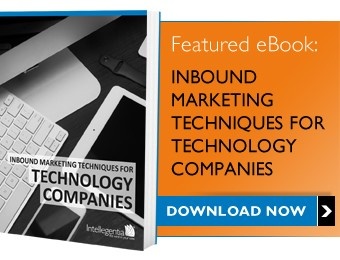
Today’s technology buyer will conduct their own research on vendors online and without interacting with the Sales team. They want to be educated by a solution provider who can provide them with relevant content, someone who can advise them on industry trends and best practices, has solutions to their challenges and will help them stay ahead of their competition. That's a pretty tall order!
Successful marketing to this type of buyer requires much more effort and persuasion every step of the way of the buyer’s journey. With all these factors in play, technology buyers do not have the patience to listen to companies and their shameless self-promotion of their products. To really engage with these types of buyers you need to engage them early in the buying cycle, provide real value through your content and have systems in place for nurturing leads through the sales cycle.
This job falls to
Marketing functions - the challenge is to provide quality leads, which needs processes, detailed analytics and automation to drive those leads through the pipeline. This is where marketing automation comes in.
Marketing automation helps enhance your lead intelligence, improve lead-to-sale conversion rates and align your Sales and Marketing teams.
1. AUTOMATE LEAD NURTURING
With only 21% of marketing leads converting into sales (MarketingSherpa) and lack of lead nurturing being the main cause of this poor performance, Marketers need to have systems in place to nurture leads until they are ready to buy.
Marketing automation software platforms such as HubSpot, enable Marketers to create high quality lead nurturing programmes that proactively reach and engage technology buyers through these long buying cycles, which ultimately delivers better leads to sales.
Automated email processes can be set up and triggered for example when someone fills out a form on your website. Based on the type of trigger, your marketing automation system will start the right type of email campaign. You can specify which emails you want to send at which time, for example, a link to a blog in email 1, a whitepaper in email 2 and a video testimonial in email 3 – content that is tailored to the particular stage of the buying cycle they are at. Based on the recipient’s response to your campaigns, you can either accelerate the campaign or slow down the campaign or try something different altogether. This is personalisation at its best. Done correctly, automated campaigns will provide the right information at the right time, increase conversion rates and shorten the sales cycle.
2. COHESIVE SALES AND MARKETING TEAMS
Using marketing automation enables Marketing to be more proactive and requires Sales and Marketing to work together to provide a better qualification process.
With automated systems it is possible to assign a lead score based on a prospect’s behaviour. Leads can be then passed to the Sales team when they reach a certain score or meet certain qualification criteria. Armed with this sort of intelligence, Marketing are then able to only pass over the warmest leads to Sales.
Marketing automated systems such as HubSpot can integrate with Salesforce and other CRM systems and can be used to help the Sales team be more effective. Once leads have filled out a form, Sales people can get a notification every time these leads come back to visit the website.
3. IMPROVED INSIGHT AND ROI
Marketers can gain better control of their marketing by having a single customer view. There is a wealth of information that can be gleaned from automated systems - every interaction that a prospect had with your organisation- from first click to becoming a Marketing Qualified Lead, and beyond. These systems provide Marketers with the information they need to know what channels and content is working for them and what isn’t. Marketing automation provides Marketing with the metrics they need to prove their ROI.
These are just a couple of examples that illustrate how marketing automated systems can provide a comprehensive solution to increase marketing productivity for companies with complex sales cycles.
Want to see how marketing automation can help you impact sales? Read our eBook focused on Inbound Marketing techniques for Technology Companies.

.png?width=250&height=76&name=Intellegentia%20Logo%20(MAIN).png)